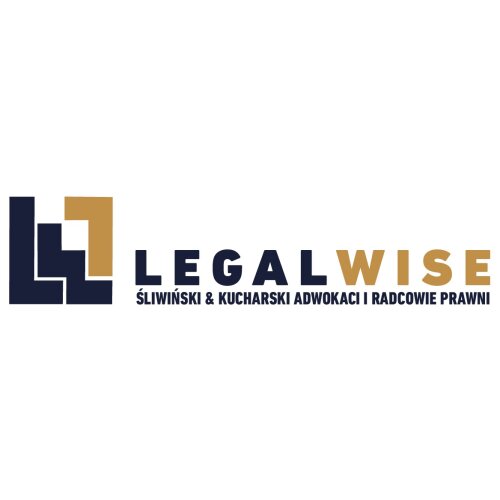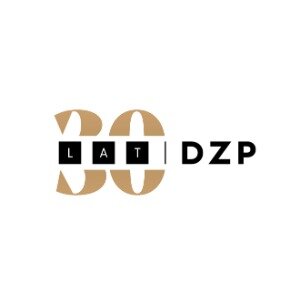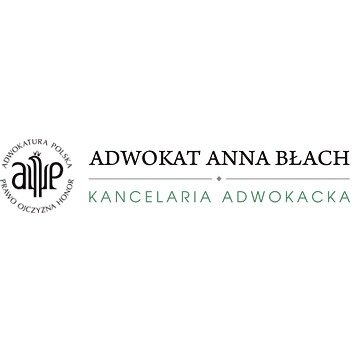Best Land Use & Zoning Lawyers in Warsaw
Share your needs with us, get contacted by law firms.
Free. Takes 2 min.
Free Guide to Hiring a Real Estate Lawyer
List of the best lawyers in Warsaw, Poland
About Land Use & Zoning Law in Warsaw, Poland
Land Use and Zoning Law in Warsaw, Poland, involves the regulations and legal frameworks governing how land and properties can be used and developed. These laws ensure organized development, preserve urban planning standards, and protect both the environment and community interests. In Warsaw, zoning regulations and land use planning are particularly significant due to the city's historical heritage and ongoing modernization efforts. Urban planning in Warsaw is designed to balance historical preservation with contemporary needs, impacting residential, commercial, industrial, and recreational areas.
Why You May Need a Lawyer
Legal assistance in Land Use and Zoning matters can be essential in various scenarios, including:
- Property Development: Whether you're a private individual or a developer, navigating the complexities of zoning regulations and obtaining necessary permits can be challenging.
- Disputes: Legal conflicts might arise over land use violations, boundary disputes, or non-compliance with zoning laws.
- Land Acquisition: Purchasing land for development purposes often requires thorough legal scrutiny to avoid future legal complications.
- Rezoning Applications: Efforts to rezone property for different uses often involve substantial legal work, including advocacy and representation at public hearings.
- Compliance Issues: Ensuring that development projects comply with local, regional, and national laws can require specialized legal knowledge.
Local Laws Overview
Key aspects of local laws related to Land Use and Zoning in Warsaw include:
- Planning Permissions: Obtaining the required permits and approvals before starting any development project.
- Local Master Plans (MPZP): These are detailed plans adopted by the local council, dictating the use of specific land areas. Understanding the specifics of these plans is crucial for any development activity.
- Building Codes: Regulations outlining the standards for construction, safety, and environmental impact.
- Height and Density Restrictions: Zoning laws often include constraints on building height, density, and other spatial arrangements to ensure balanced urban development.
- Environment Protection Regulations: These regulations ensure that development activities do not harm the environment and conform to sustainable practices.
Frequently Asked Questions
1. What is the first step in the property development process?
The initial step is typically obtaining a Local Spatial Development Plan (MPZP) or, if unavailable, a Decision on Land Development Conditions (WZiZT).
2. Can I change the designated use of my property?
Yes, but you must apply for rezoning, which involves a formal process and public hearings, often requiring legal assistance.
3. What are the common zoning classifications in Warsaw?
Zoning classifications include residential, commercial, industrial, agricultural, and mixed-use areas, each with specific regulations and permitted uses.
4. How do I address a zoning dispute with a neighbor?
Consulting with a lawyer can help mediate and resolve disputes through negotiation, or, if necessary, legal action.
5. What permits are required for building construction?
You will need a building permit (pozwolenie na budowę) and possibly other permits depending on the project's nature and location.
6. Are there penalties for non-compliance with zoning laws?
Yes, non-compliance can result in fines, mandatory changes to the property, or even demolition of unauthorized structures.
7. How long does the rezoning process take?
The rezoning process can vary but often takes several months, including application review and public consultations.
8. What role do public hearings play in zoning matters?
Public hearings allow community members to voice opinions on zoning changes, influencing the final decision-making process.
9. Can historical properties in Warsaw be developed or modified?
Modifications to historical properties are tightly controlled, requiring additional permits and adherence to heritage preservation regulations.
10. Who enforces zoning laws in Warsaw?
Zoning laws are enforced by municipal authorities who ensure compliance through regular inspections and addressing reported violations.
Additional Resources
For more information and assistance, consider reaching out to the following resources:
- Warsaw City Hall (Urząd m.st. Warszawy): Provides guidelines and assistance regarding local zoning plans and permits.
- Polish Land Surveyors Association (Stowarzyszenie Geodetów Polskich): Offers resources and support on land survey-related issues.
- Ministry of Development Funds and Regional Policy (Ministerstwo Funduszy i Polityki Regionalnej): Oversees urban planning and development policies.
- Polish Chamber of Commerce (Krajowa Izba Gospodarcza): A resource for business-related zoning and land use issues.
Next Steps
If you need legal assistance in Land Use and Zoning, follow these steps:
- Identify Your Needs: Clearly define your legal requirements and gather relevant documents, such as property deeds and existing permits.
- Research Legal Professionals: Look for lawyers or law firms specializing in Land Use and Zoning in Warsaw, considering their experience and client reviews.
- Consultation: Schedule consultations with potential lawyers to discuss your case, get advice, and understand potential legal fees.
- Engage a Lawyer: Choose a lawyer who meets your needs, and officially hire them to represent you in navigating the legal landscape of Land Use and Zoning.
Lawzana helps you find the best lawyers and law firms in Warsaw through a curated and pre-screened list of qualified legal professionals. Our platform offers rankings and detailed profiles of attorneys and law firms, allowing you to compare based on practice areas, including Land Use & Zoning, experience, and client feedback.
Each profile includes a description of the firm's areas of practice, client reviews, team members and partners, year of establishment, spoken languages, office locations, contact information, social media presence, and any published articles or resources. Most firms on our platform speak English and are experienced in both local and international legal matters.
Get a quote from top-rated law firms in Warsaw, Poland — quickly, securely, and without unnecessary hassle.
Disclaimer:
The information provided on this page is for general informational purposes only and does not constitute legal advice. While we strive to ensure the accuracy and relevance of the content, legal information may change over time, and interpretations of the law can vary. You should always consult with a qualified legal professional for advice specific to your situation.
We disclaim all liability for actions taken or not taken based on the content of this page. If you believe any information is incorrect or outdated, please contact us, and we will review and update it where appropriate.
















